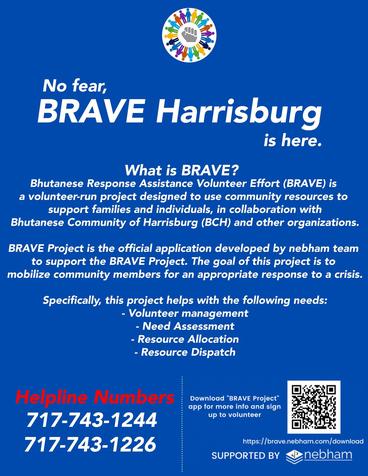The availability of accurate COVID-19 information that is culturally and linguistically appropriate is essential to keeping communities safe. However, there are currently many communication challenges for refugee, immigrant, and migrant (RIM) communities. Language barriers, time restraints, and having patients isolated from their families has resulted in a communication gap between patients, families, and health providers. These language barriers often force health providers to treat patients only based on their symptoms, without full knowledge of their background and past medical history.
Community-Led COVID-19 Hotlines
COVID-19 hotlines, organized by volunteers and health providers who are members of or work in RIM communities, provide a forum for patients’ families to seek information and communicate more effectively with their health providers. The hotlines also serve as a useful tool for providing additional details about COVID-19 symptoms and risks specific to that community.
Successful Implementation in Pennsylvania
In Pennsylvania, members of the Bhutanese Community in Harrisburg (BCH) identified language barriers as a hurdle to effective communication between doctors and their patients and families and a barrier to communicating risk to the broader community. A volunteer group made up of college students, social workers, and other community members established a COVID-19 hotline in response. This work was part of a larger volunteer group named BRAVE (Bhutanese Response Assistance Volunteer Effort), established in different states nationwide. The BRAVE-Harrisburg group met weekly via Zoom to discuss current issues and develop an action plan.
In time, the group’s volunteers were able to field calls 24/7—answering questions about symptoms, risks specific to the community, and tackling language barriers that emerged during 911 calls.
BRAVE-Harrisburg set up two hotline phone numbers. Both numbers are available 24/7 to the public, where they can call for assistance and information regarding COVID-19. Most of the calls were from the families of the members of the community after they started having symptoms or were tested positive for COVID-19. The calls also include community members who were discharged from the hospital after receiving the treatment for COVID-19. BRAVE-Harrisburg representatives provided detailed information about the quarantine process and made available different resources on PPE, obtaining groceries, and prescription medications for the families and individuals who were under quarantine at home. BRAVE-Harrisburg also made available information about COVID-19 in the community’s preferred languages and distributed these resources via community hubs like grocery stores and the BCH office.
